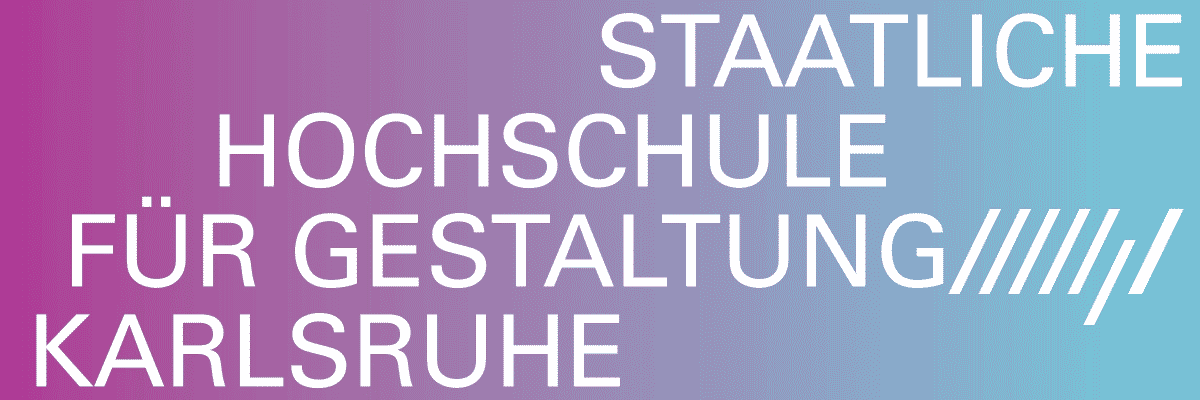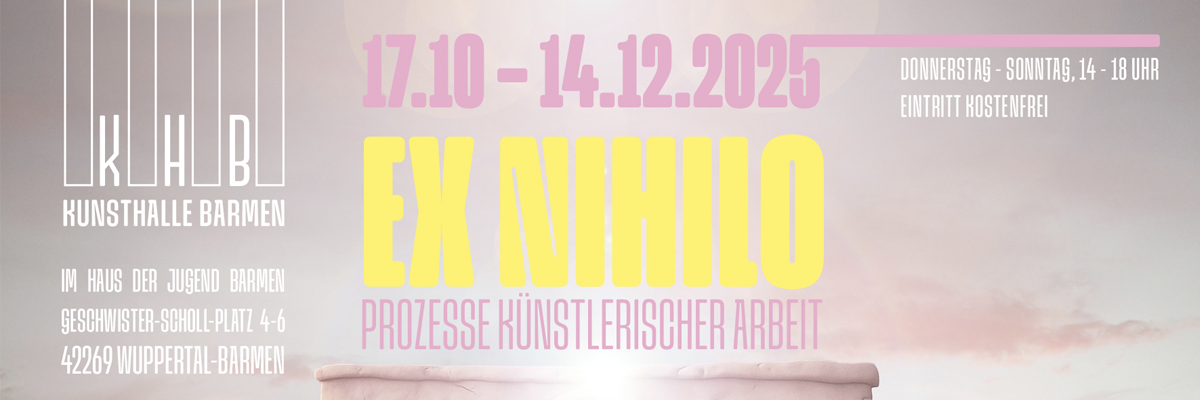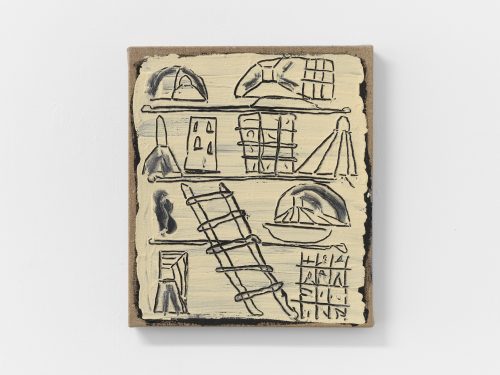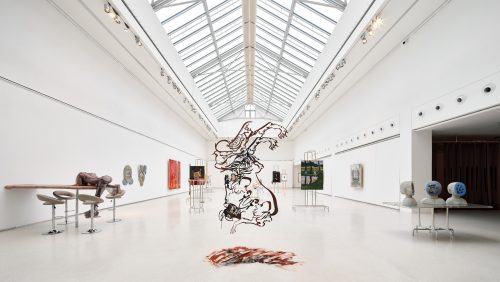
Adam Cruces
Eavesdropping
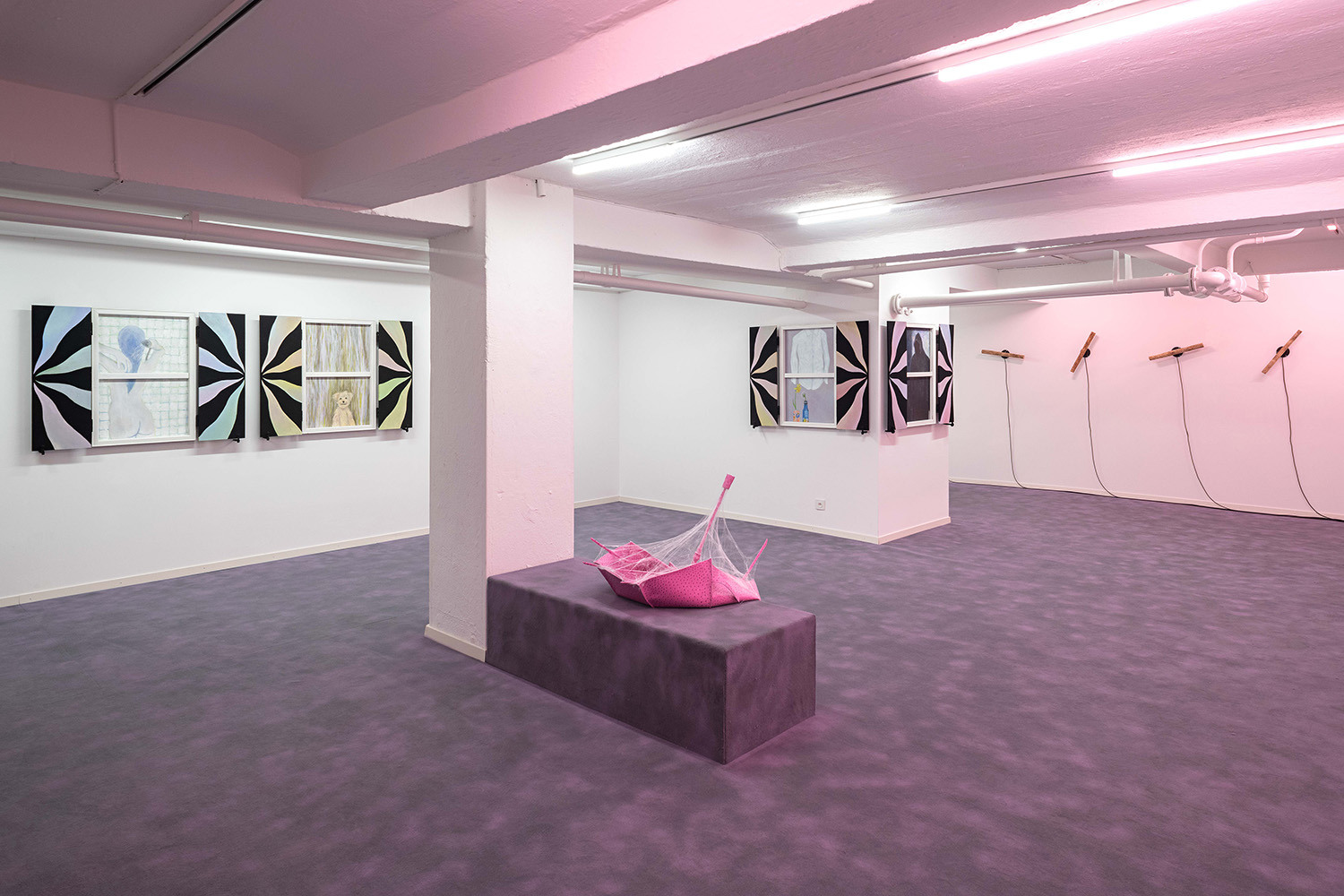
Advertisement
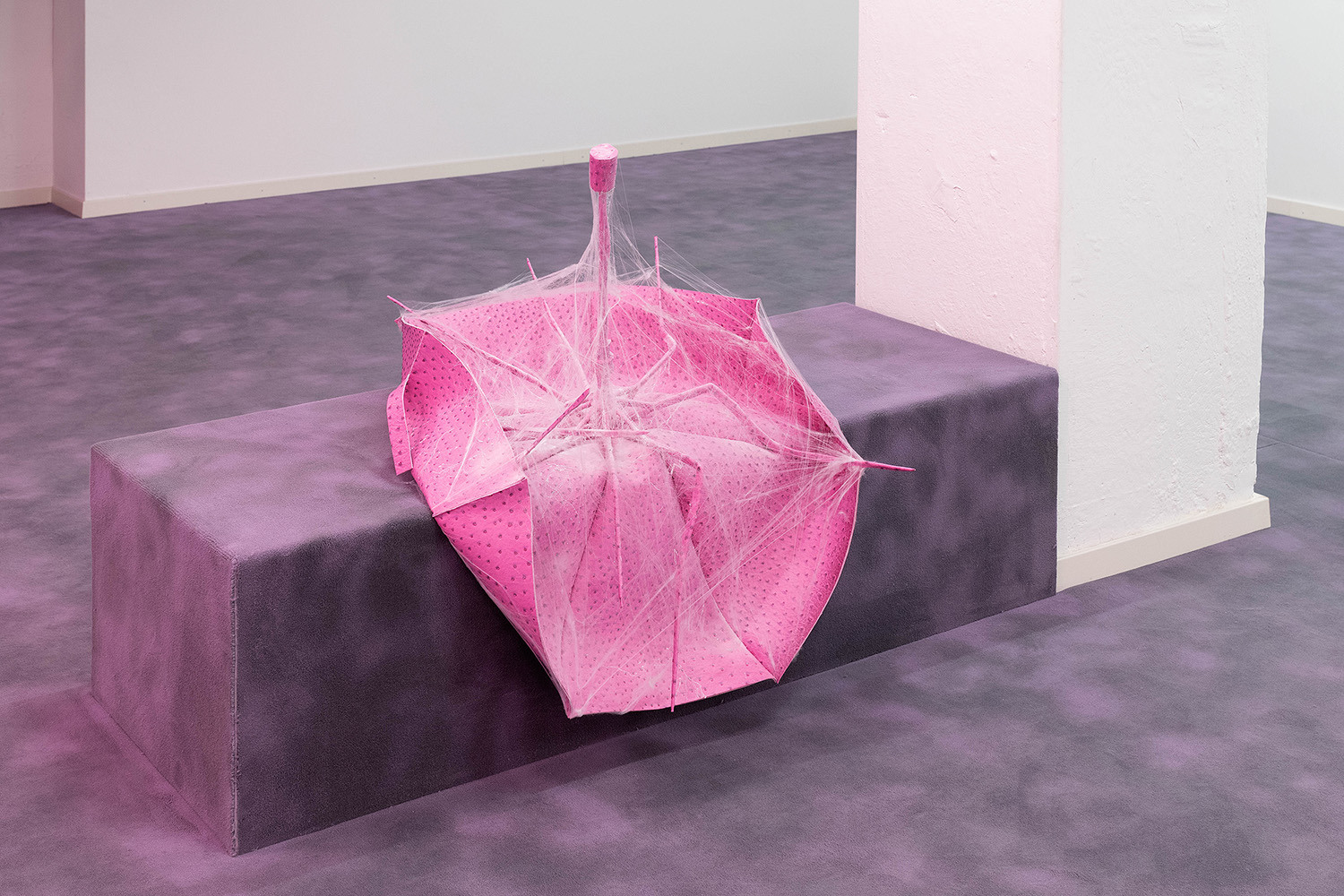
Remnant; 2022; Faux ostrich skin, umbrella parts; 100 x 90 x 55 cm.
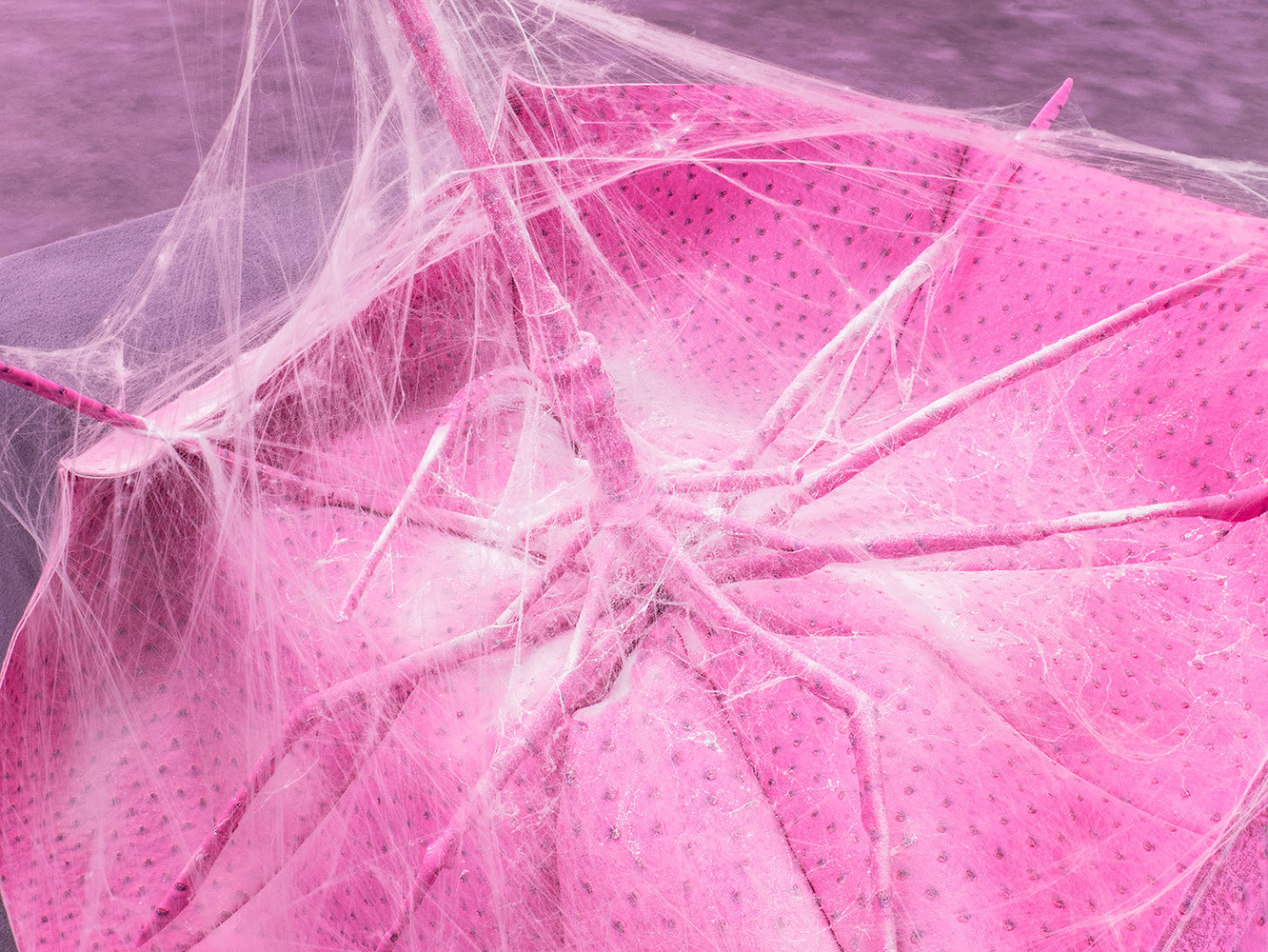
Remnant; 2022; Faux ostrich skin, umbrella parts; 100 x 90 x 55 cm.
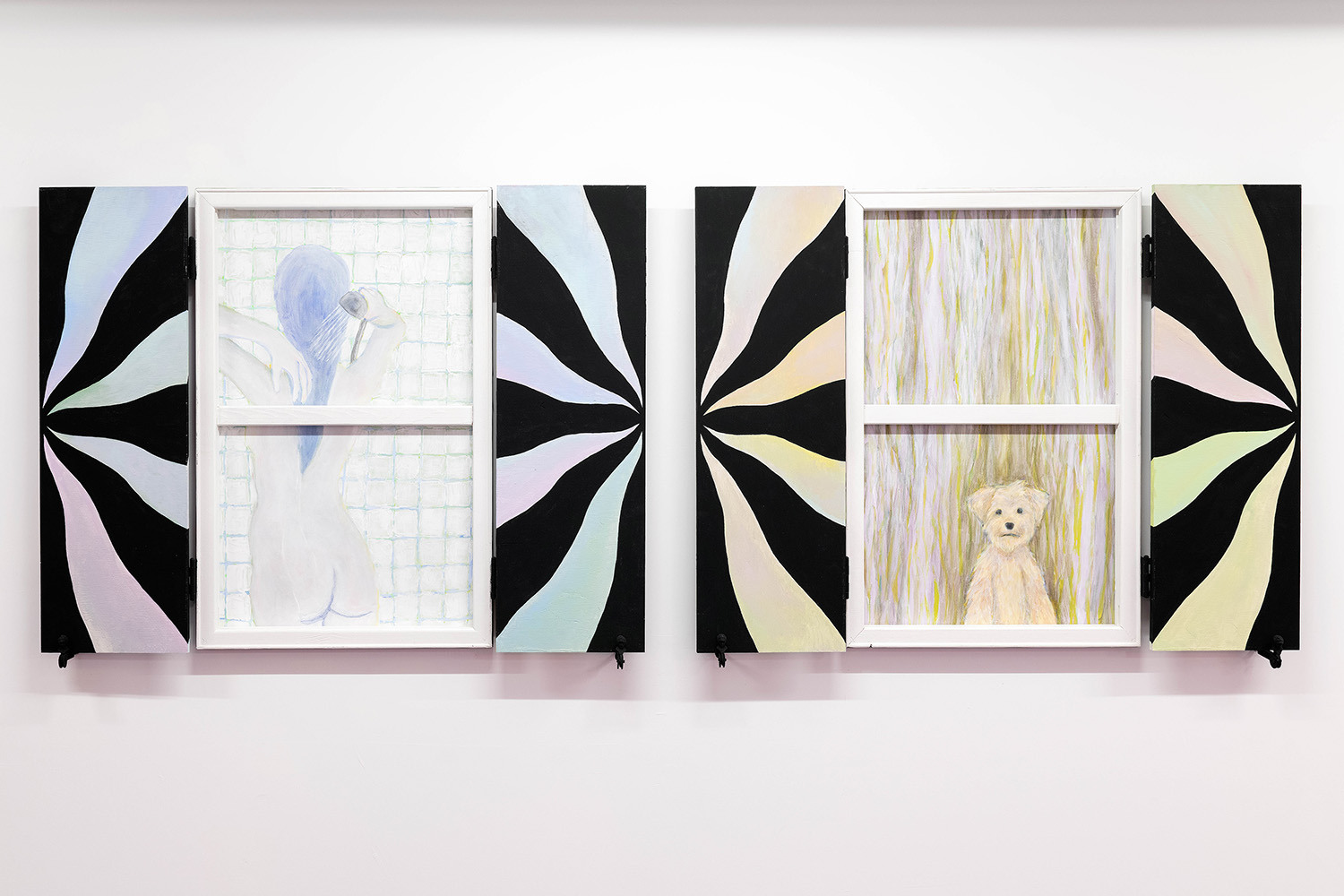
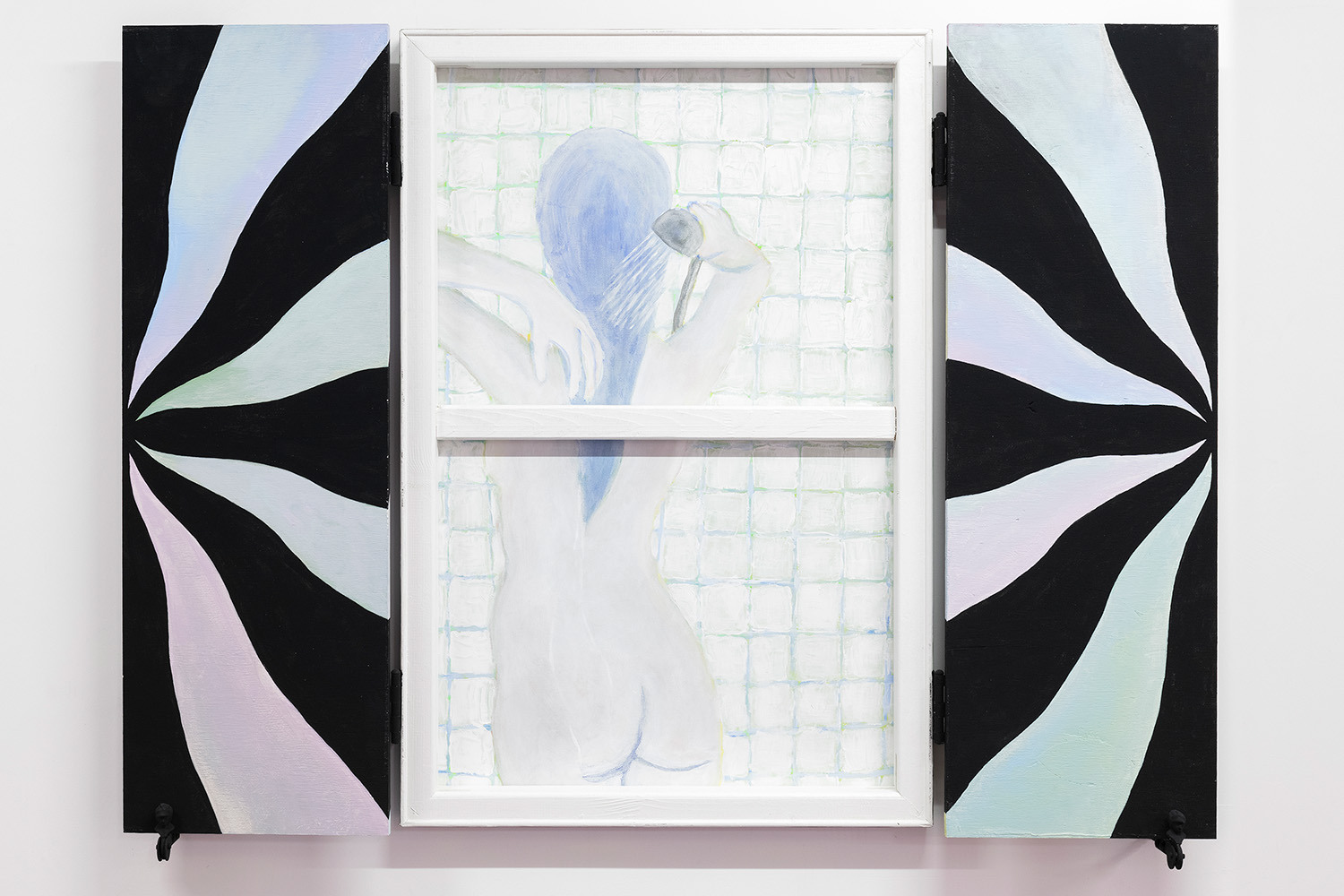
Bather; 2022; Wood, paint, hardware, canvas; 90 x 120 cm.
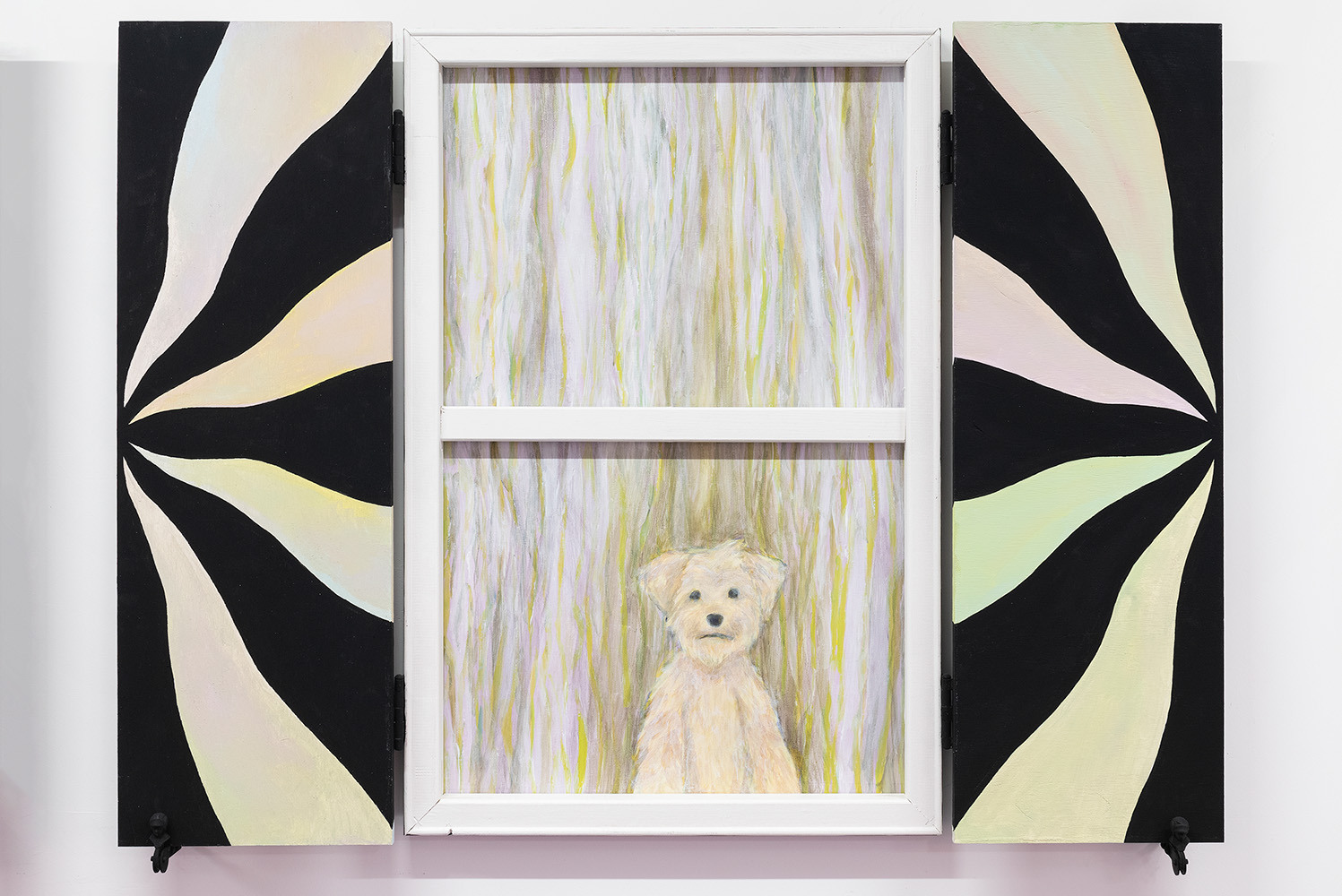
Waiting; 2022; Wood, paint, hardware, canvas; 90 x 120 cm.
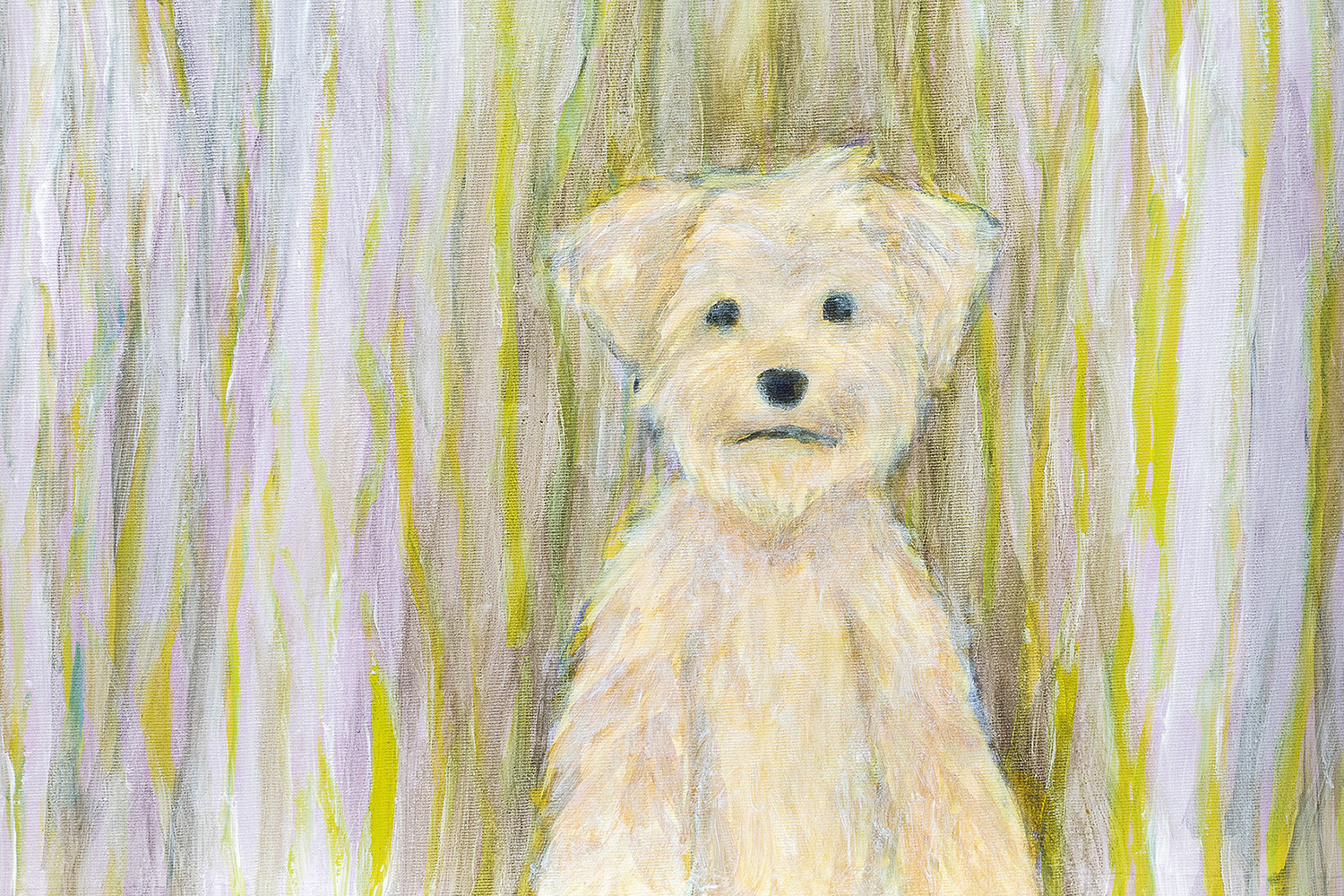
Waiting; 2022; Wood, paint, hardware, canvas; 90 x 120 cm.
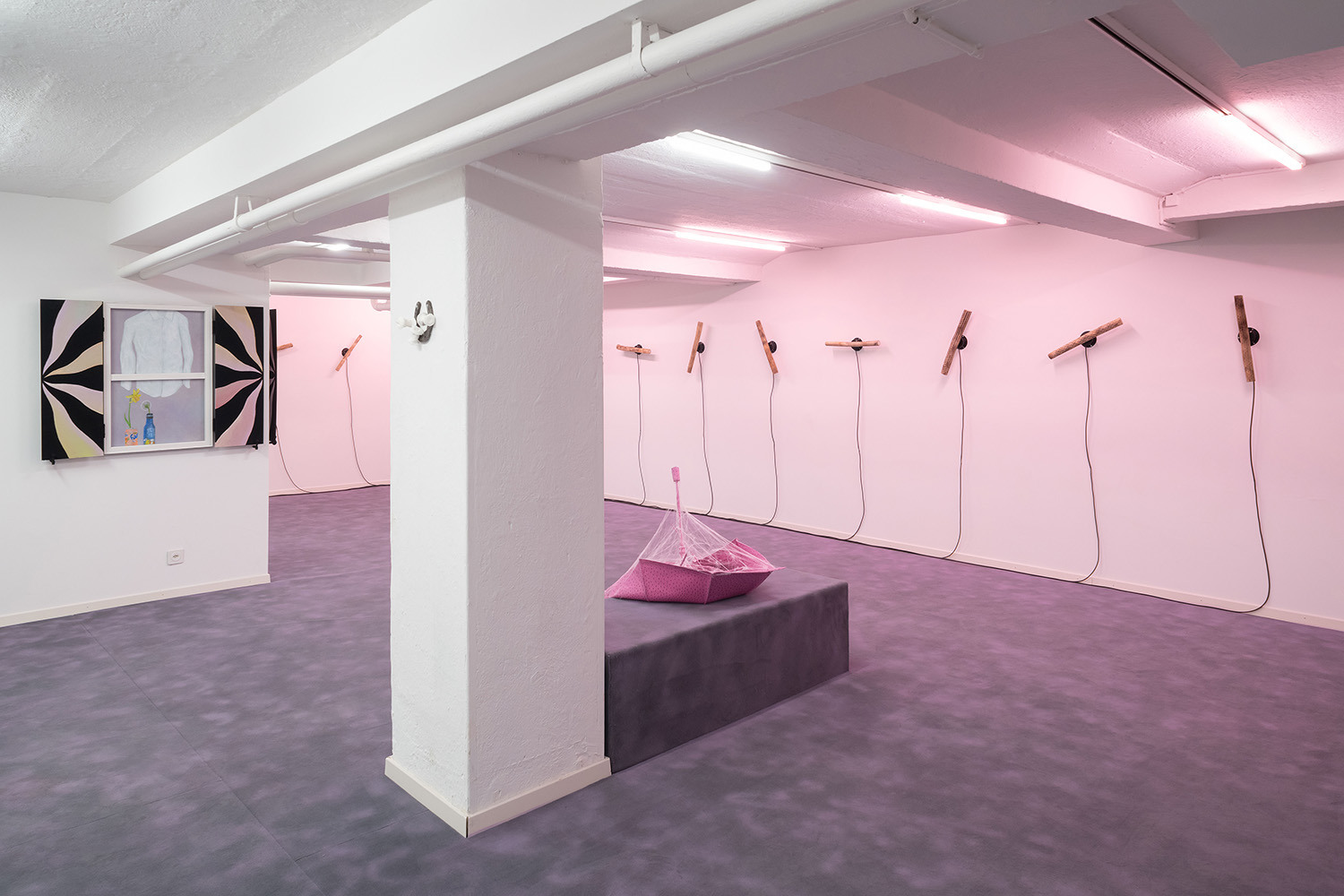
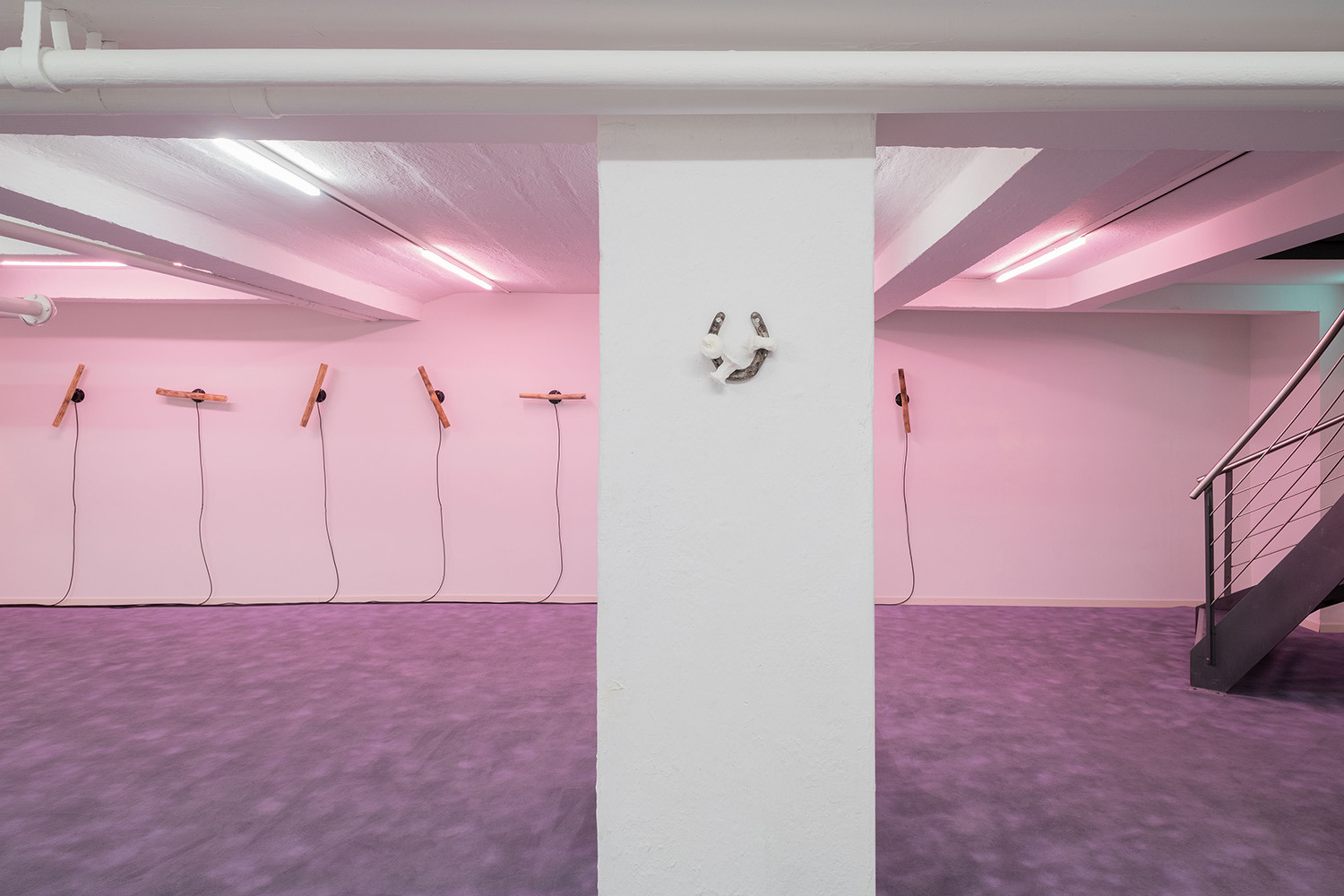
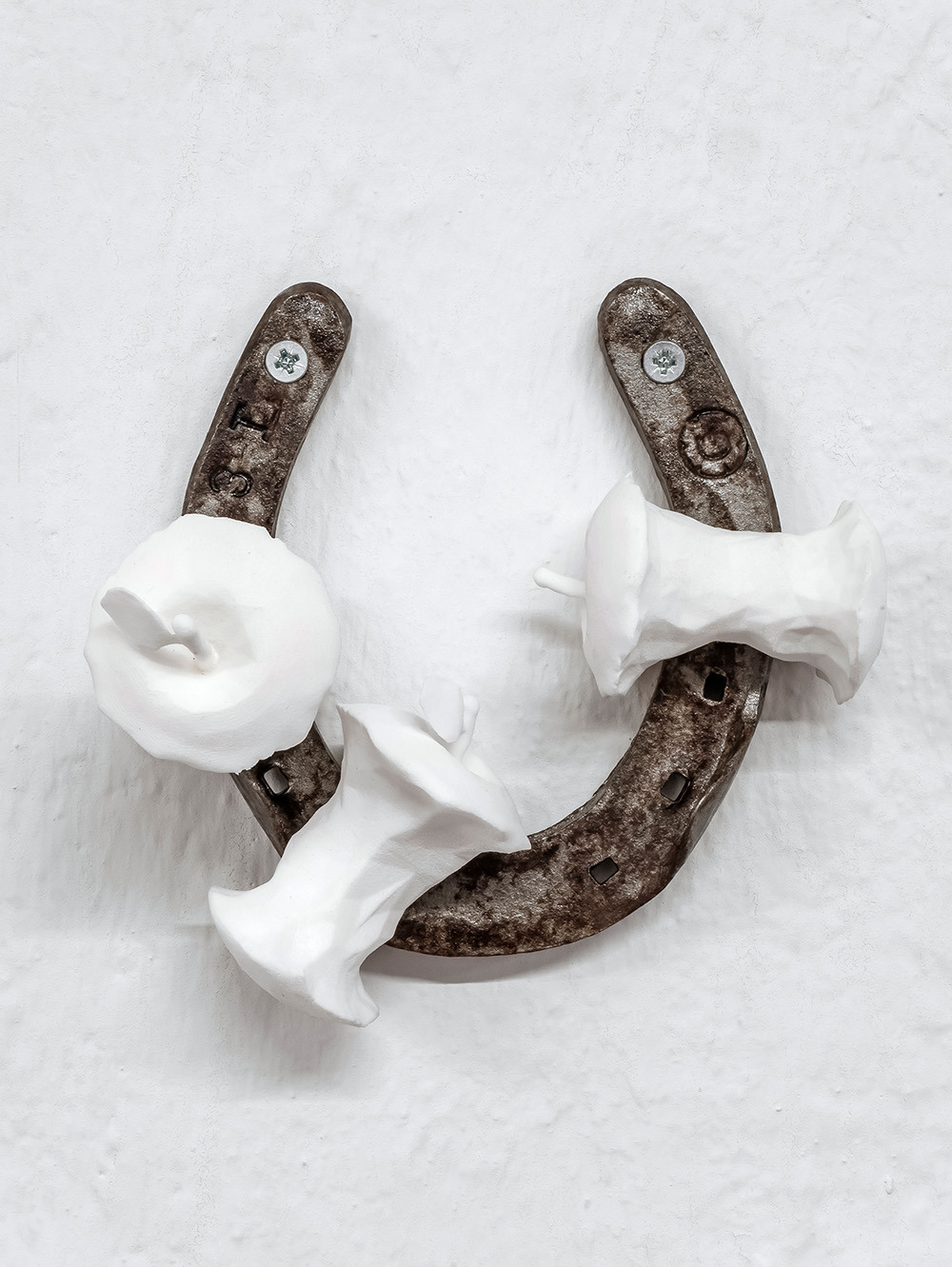
Lucky to the Core(s); 2022; Nylon 12 SLS 3D prints, horseshoe; 15 x 15 x 8 cm.
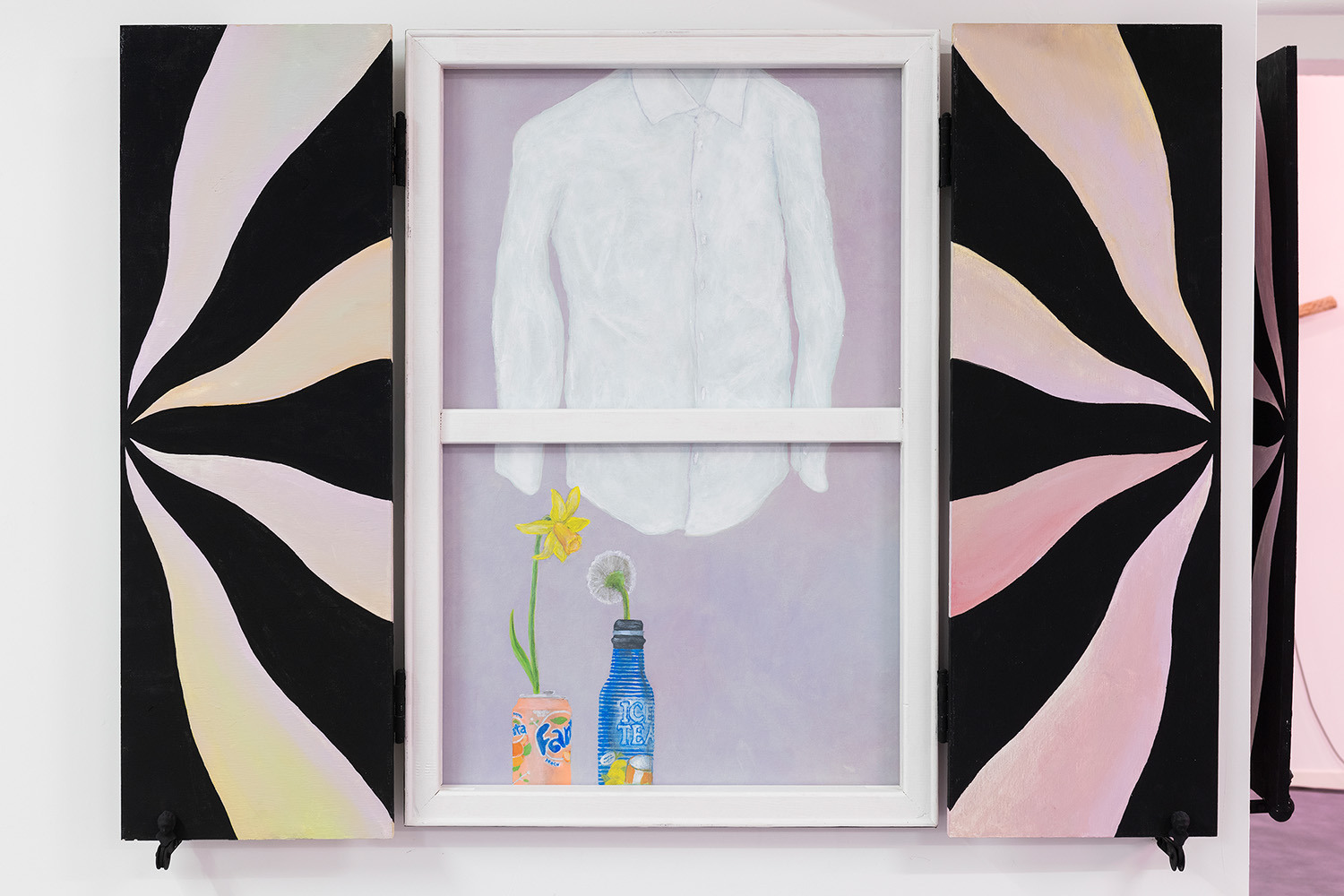
Flowers and Fruits; 2022; Wood, paint, hardware, canvas; 90 x 120 cm.
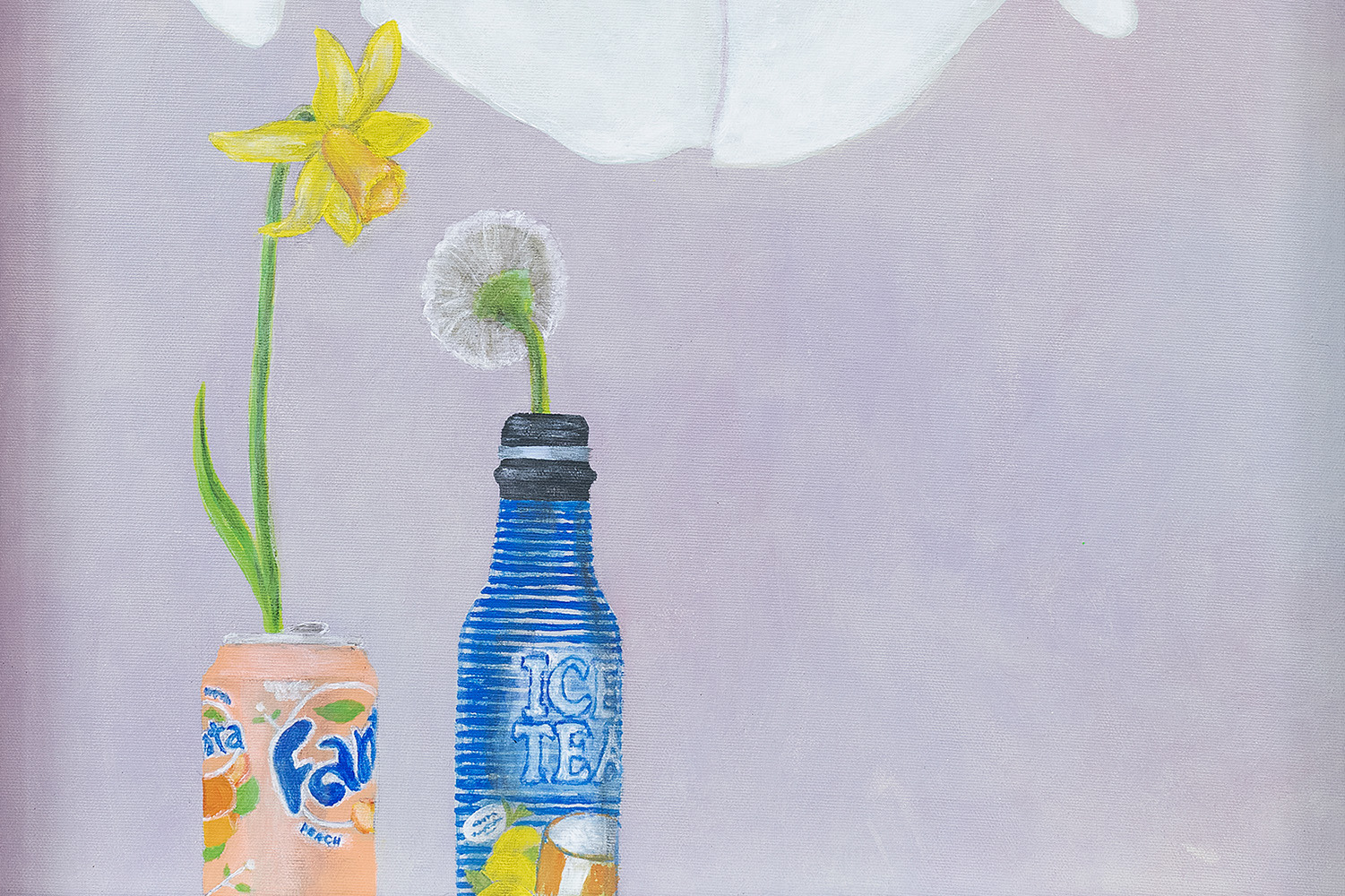
Flowers and Fruits; 2022; Wood, paint, hardware, canvas; 90 x 120 cm.
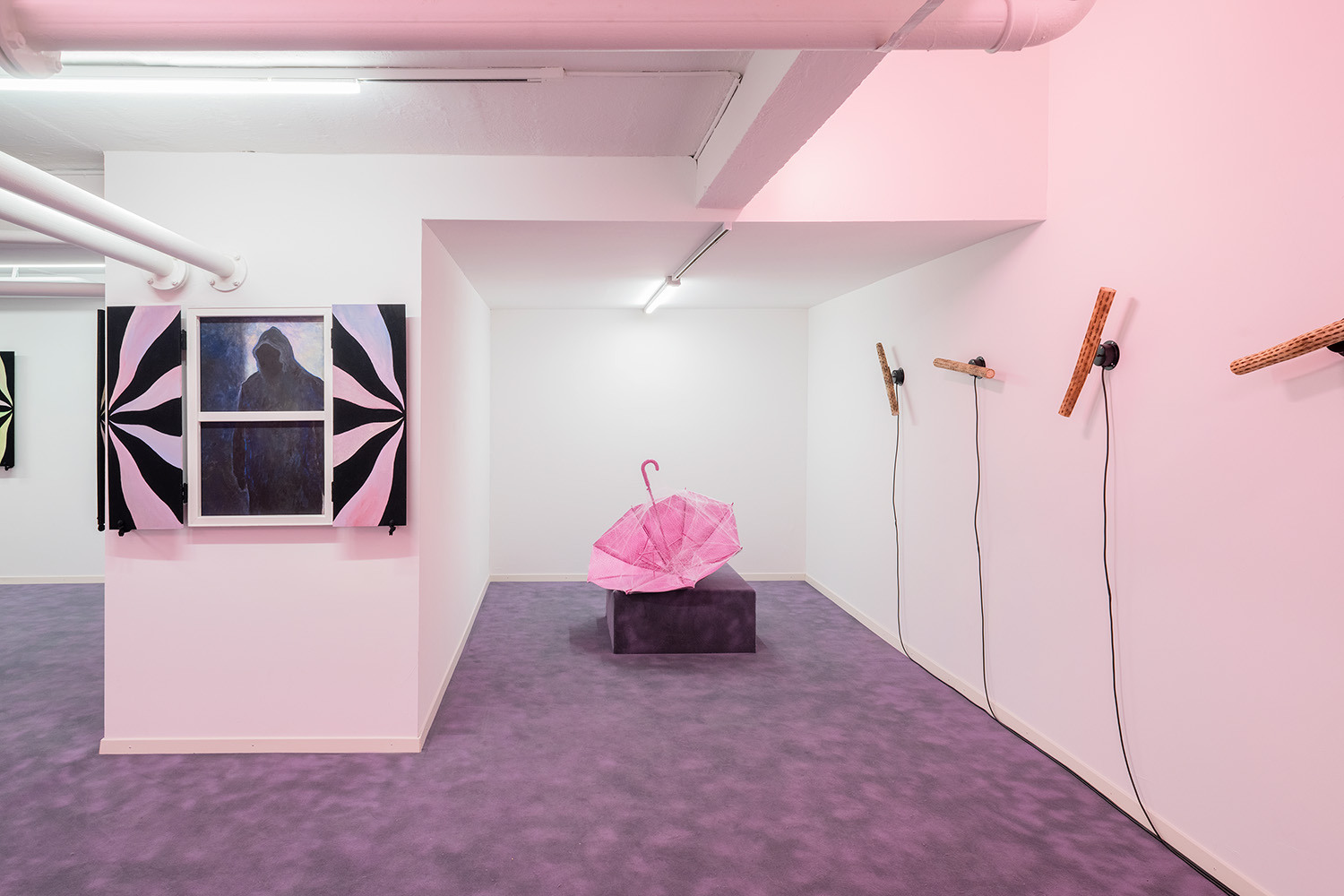
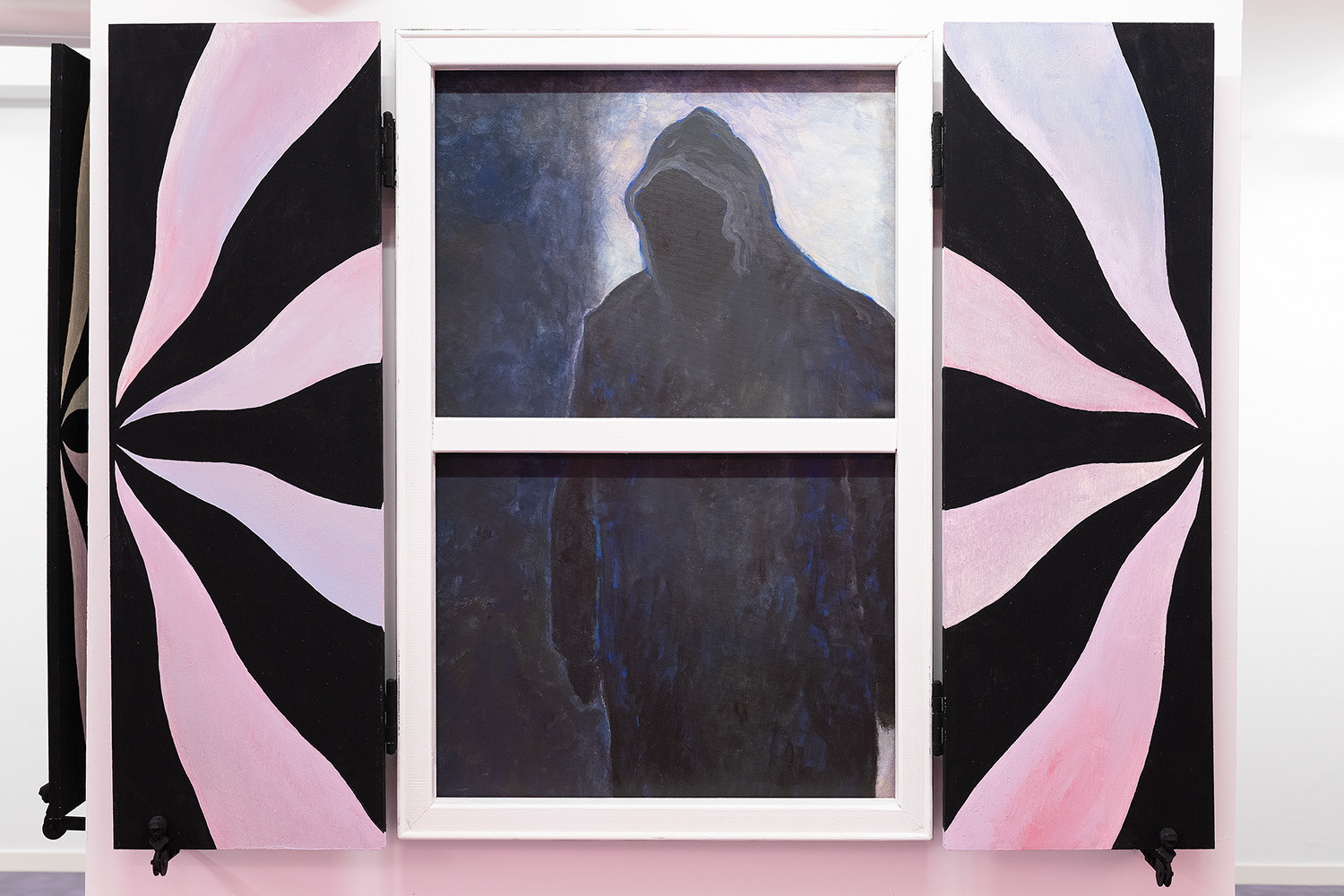
Guest; 2022; Wood, paint, hardware, canvas; 90 x 120 cm.
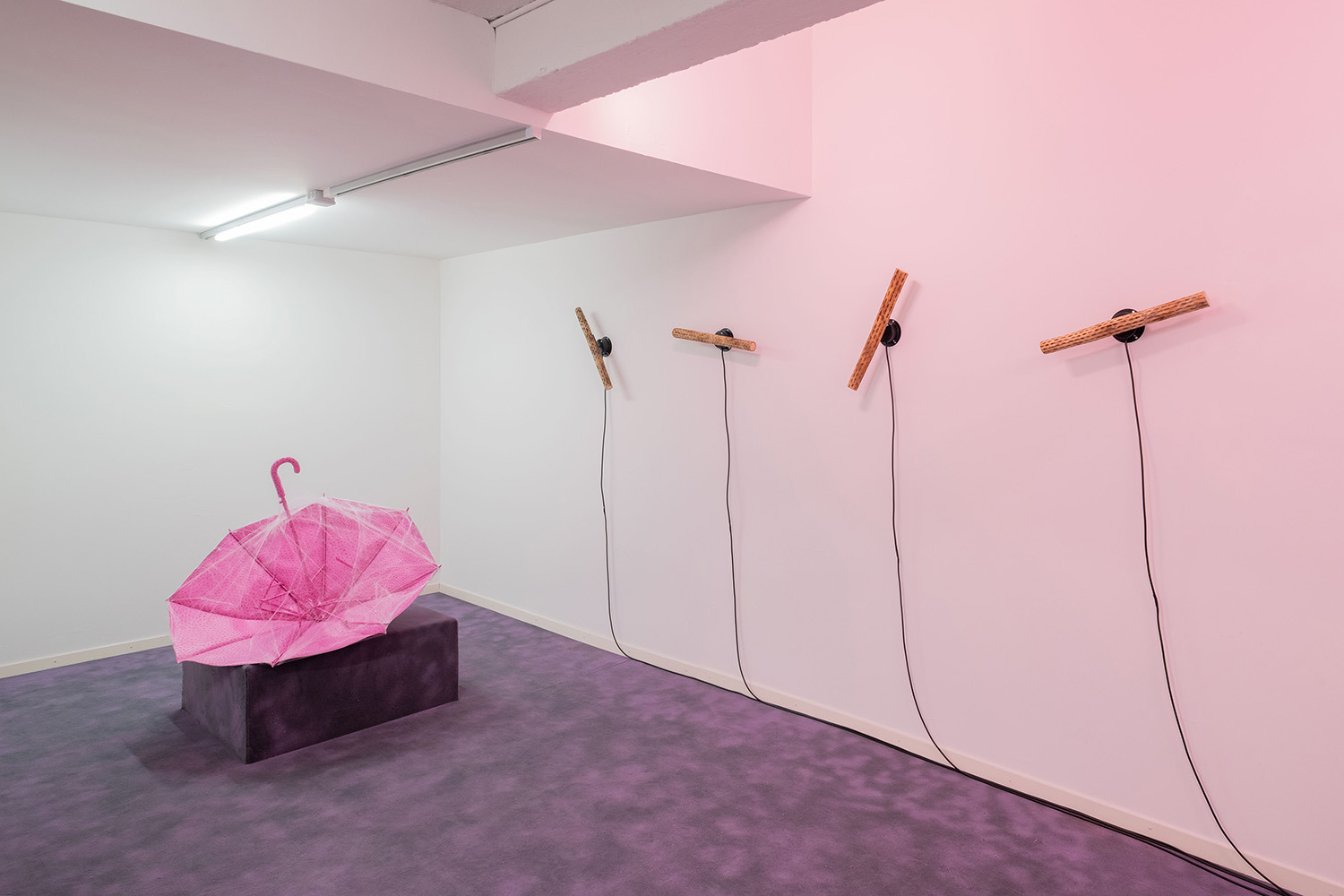
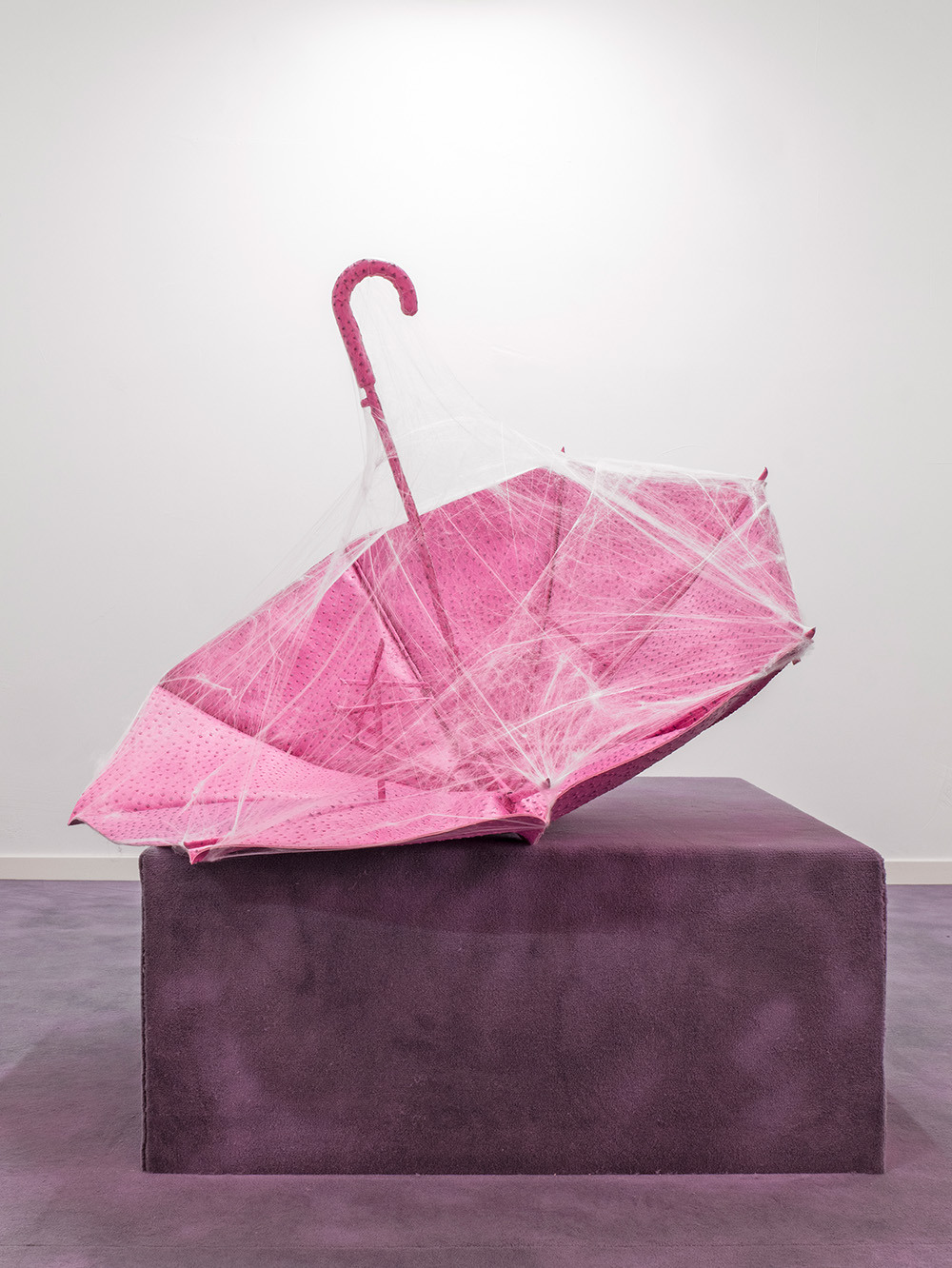
Souvenir; 2022; Faux ostrich skin, umbrella parts, cobwebs; 110 x 110 x 80 cm.
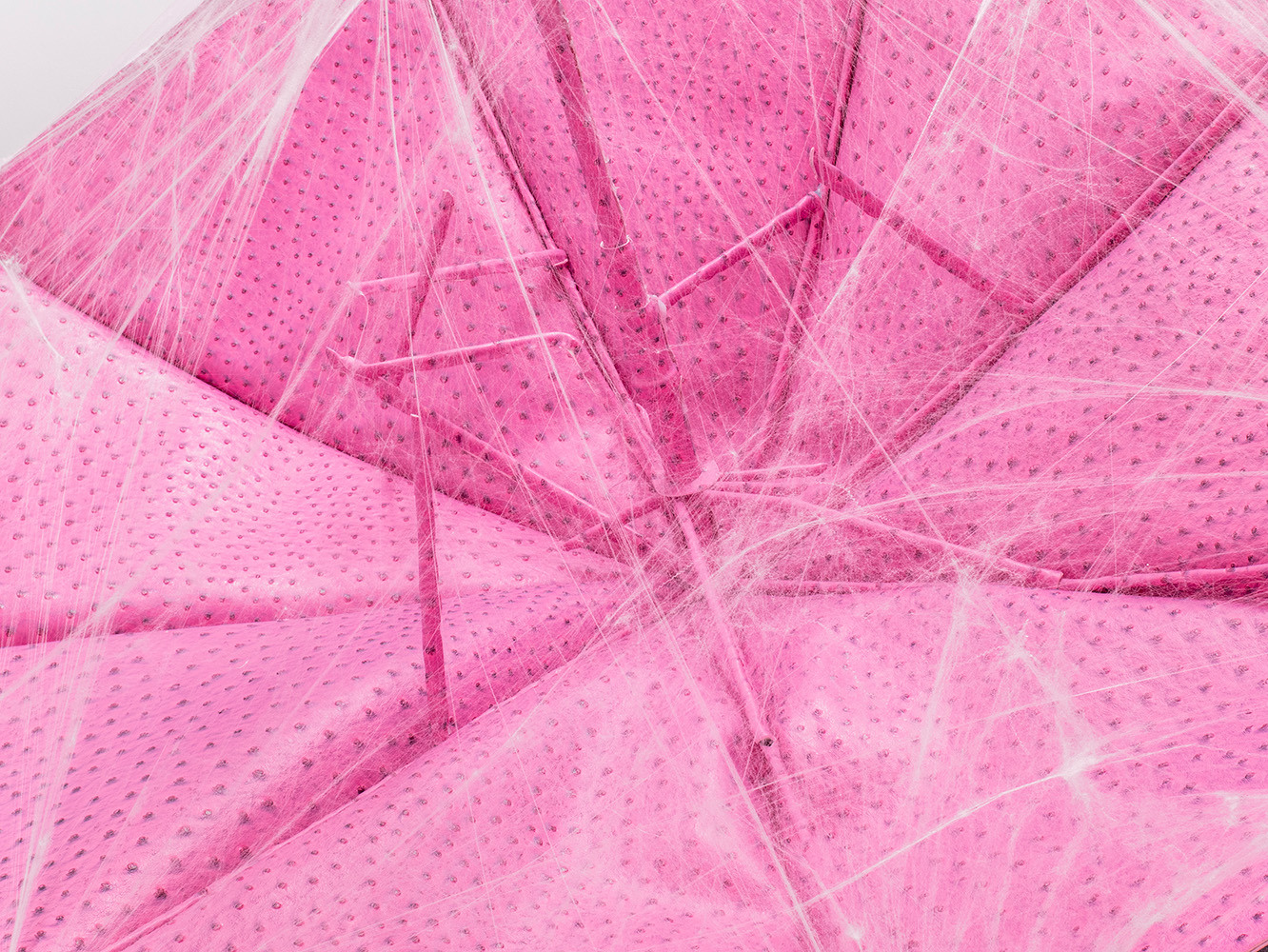
Souvenir; 2022; Faux ostrich skin, umbrella parts, cobwebs; 110 x 110 x 80 cm.
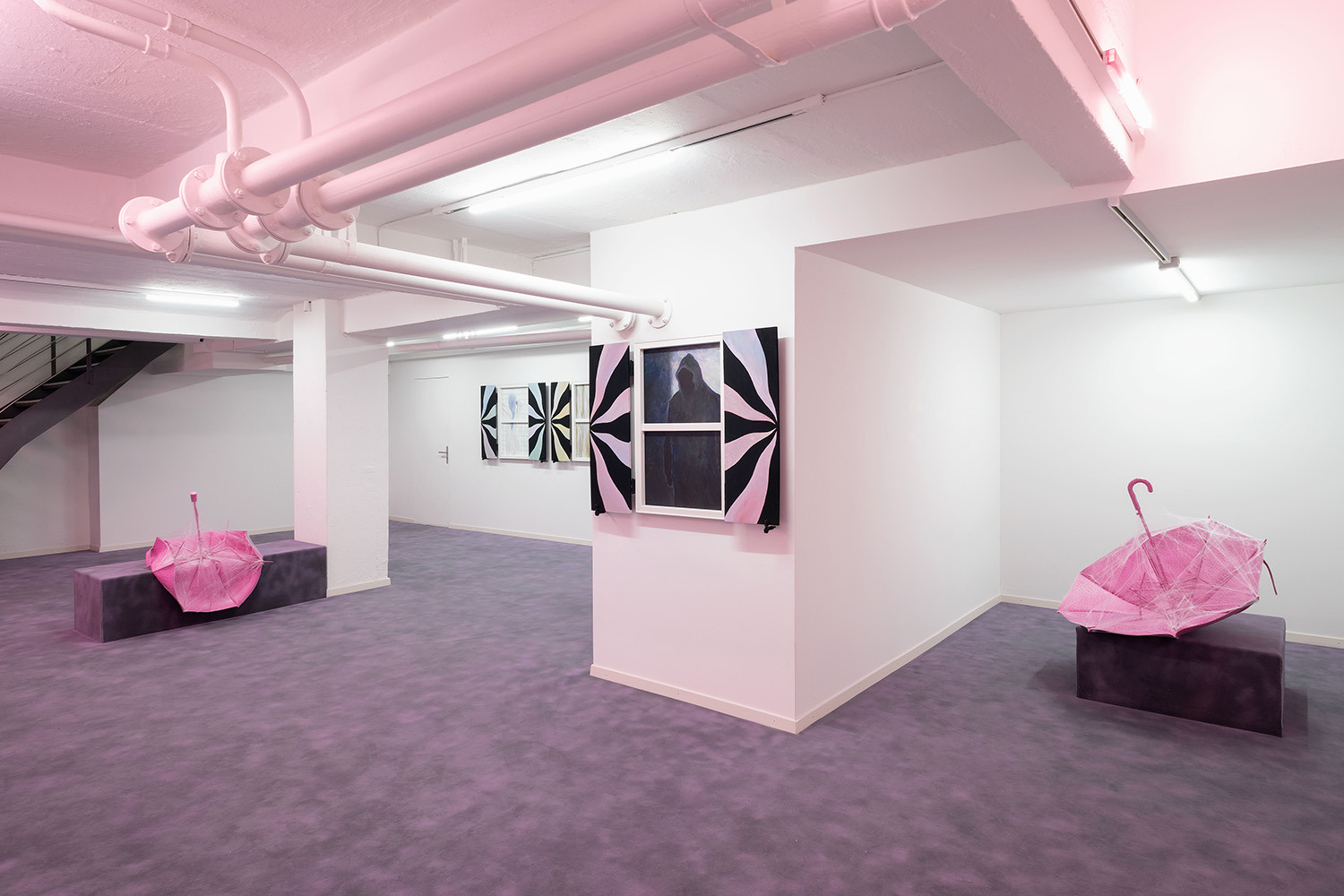
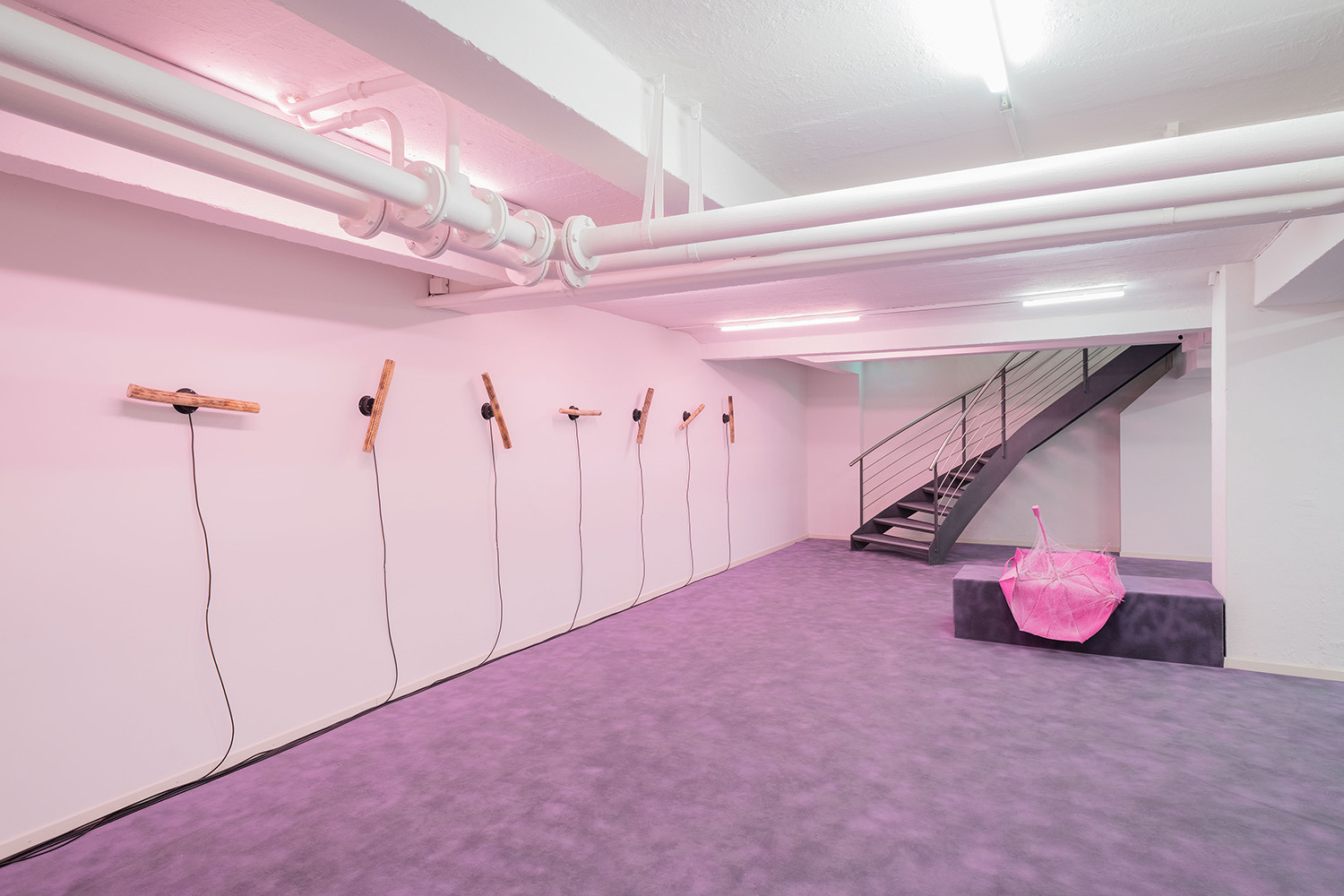
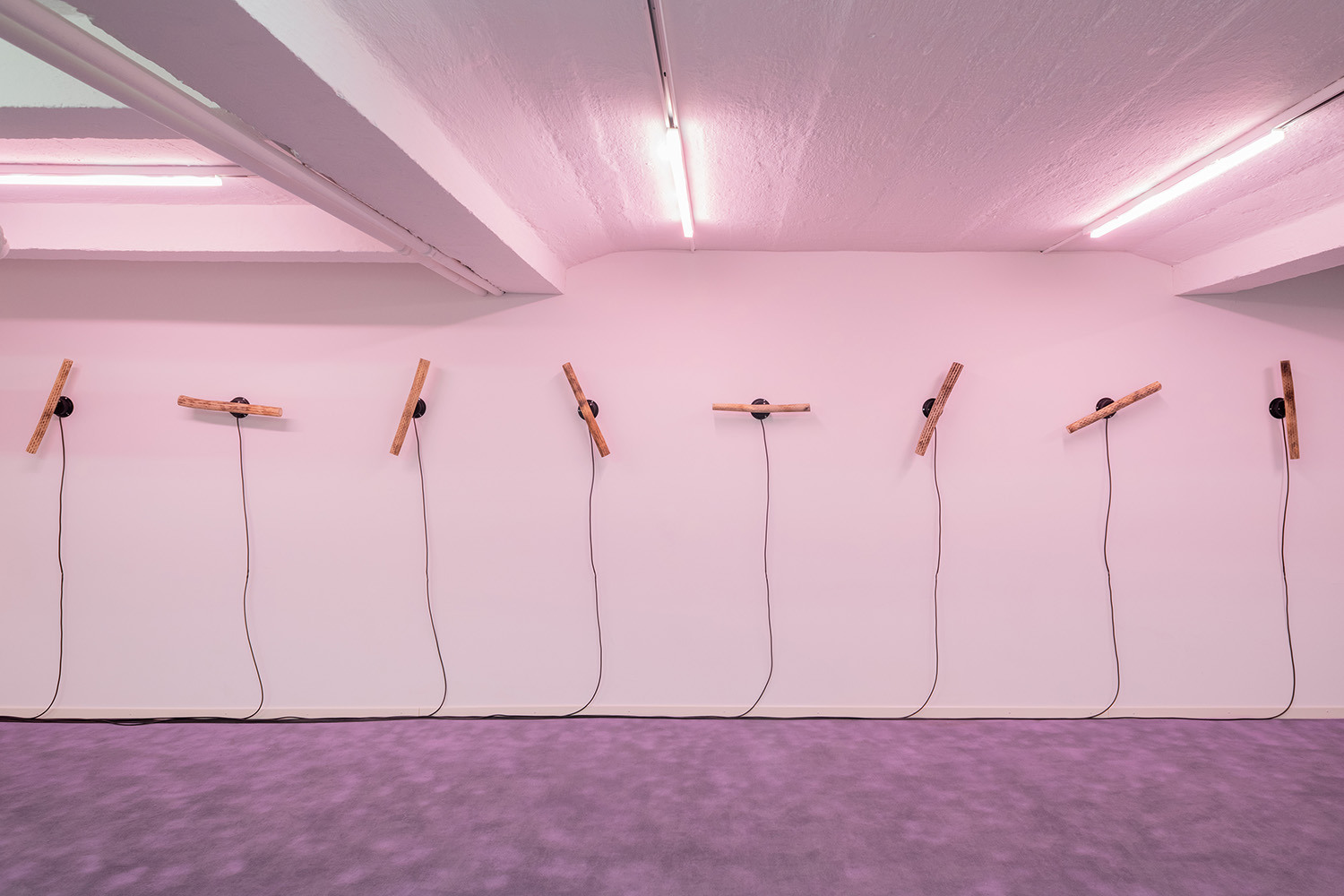
Fountain; 2022; Dried cactus, rotating motor; 50 x 11 x 10 cm. each
The oldest evidence of our ancestors' first flirtation with constructing a line between the inside and outside, the wild natural and the domestic, is about 400,000 years old, the same period as a climate-altering lack of rain in the East African Rift Valley. The easily portable version of a shelter, the umbrella (not the tent), arrived much later around 2000 BC, and it was only in the last century that the white cube gallery space was born. In many ways that neutral box, beloved for highlighting non-objective culture, represents the epitome of a dichotomy that began with that first ancient step. A perfect abstraction of an anthropocene separation of human civilization and the wider world.
Adam Cruces’s work, for the past decade, has kind of quietly mined and blurred those lines, negotiating the ridiculousness of perceived normal use and the wonder that accompanies man’s attempts at illusion. Here he draws attention to the interiority of a gallery space, its sub-level location and the ways in which any cultural product wants to suggest the world outside the space it inhabits. In Cruces’s installation, those moments of exclusion become inverted, one is welcomed into a space and then left outside again. It speaks to mankind’s desire, once the basics of shelter and food and water have been attained, to always be where one is not.
The paintings here have been inverted too, a subtle switch which suggests a window, although painting has traditionally promised itself to be a window already. An equal illusion. Physically inside looking at an illusory inside, one witnesses the banal and stimulating ways voyeurism works. As with Hitchcock’s masterpiece, Rear Window, every portal mirrors the creator and viewer, their desires and fears. Sex, horror, cute and daily- the images pictured transcend the painting while being the painterly. Why else are they boxed in by their opposite? The hardedge, design, neo-geo. The flaming designs, borrowed from those of traditional Swiss alpine architecture, are related to the flags of Swiss mercenary groups from four centuries ago. Fear tactics to confuse an opponent's men as if a burning hoard approaches.
Cruces’s works chart a globalized world in which folk cultures shift between the local and universal. The rain sticks, oscillating through thunder and calm, trace their origins to South America, yet many cultures have claimed them since. Humans have always been mesmerized with the ability to fake the real, from sounds to paintings to the scanning and 3d printing we are only beginning to dip our toes into. The extra and the ordinary.
The feeling of transportation inside the space, the moment of main character syndrome each viewer achieves, is a mental movie of aggregation. Film, for the same period as the white cube, and like theater before it, was thought to be the pinnacle of human illusion. CGI and VR are changing that rapidly, but it’s the simple fantasies and deceptions, sound and depth, which trigger our lizard brains the best.
From that first moment of separation, of creating an inside distinct from the out, we have vainly and effectively used those spaces to echo what was left behind. It can all be a bit dystopian. Fake windows in the basement, umbrellas no longer able to offer protection, food one can not eat. In a dry future, like drawings of a dodo bird, recordings and simulacrum of rain may be the only memory. This is an interior free of safety, but it also offers up a bigger truth. Beyond sustenance and protection from the elements, it’s culture and the arts which offer the radioactive mirror and a narrative way through. Humor and reality colliding into something like hope.
Mitchell Anderson
